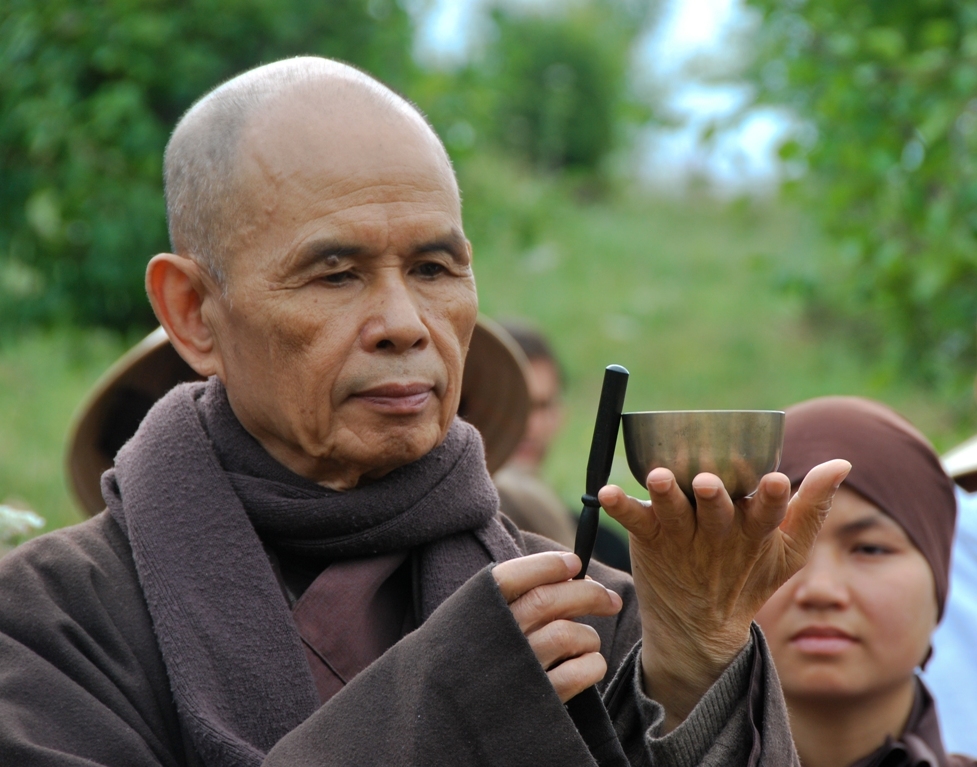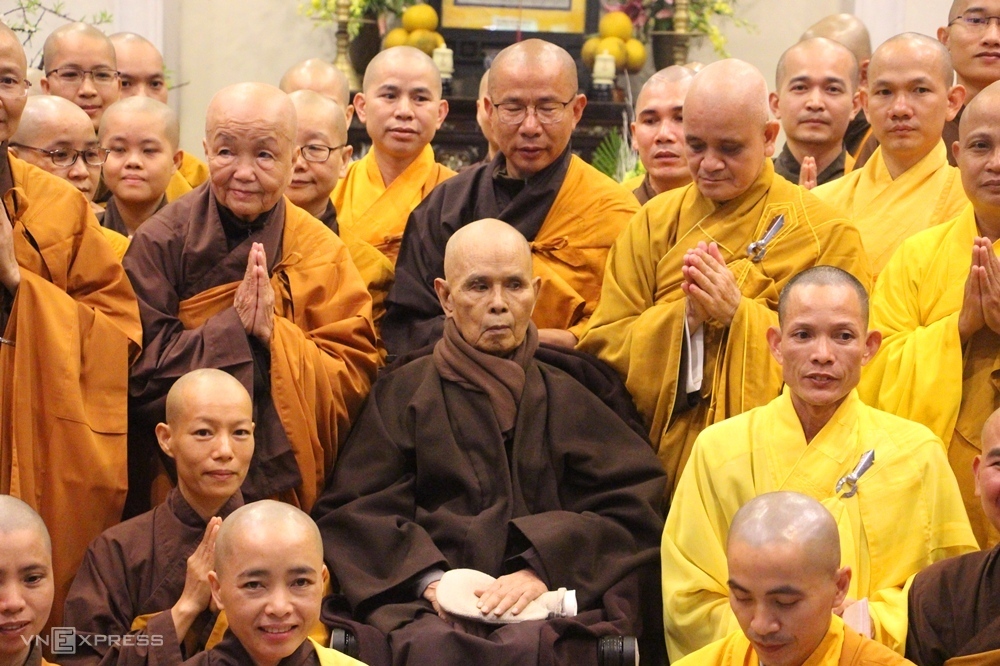Thich Nhat Hanh, a monk with global influence, passed away at Tu Hieu Temple in his birthplace Hue at midnight Saturday aged 95.
The death was announced by Plum Village, his organization of monasteries.
 |
|
Zen Master Thich Nhat Hanh at Plum Village in France in 2009. Photo by Plum Village |
The Zen Master, considered the second most influential Buddhist leader in the world after the Dalai Lama, studied and practiced Zen Buddhism from 1942.
He became a monk at the age of 23 after studying Buddhism for seven years.
He left Vietnam in 1966 and has lived in Plum Village in southern France for decades, traveling regularly throughout North America and Europe to give lectures on mindfulness and peace.
His key teaching was that through mindfulness people can learn to live happily in the present moment, which is the only way to truly develop peace, both within oneself and in the world outside.
For many decades Thich Nhat Hanh was promoting “engaged Buddhism”, which focuses on humans’ active role in facilitating change.
He visited Vietnam four times between 2005 and 2017, when he met with devout Buddhists and offered prayers for war victims.
In 2014 he suffered a stroke and was hospitalized in France for four and a half months.
In October 2018 he returned to live out his last days at Tu Hieu, where he first studied and practiced Zen Buddhism.
 |
|
Zen Master Thich Nhat Hanh (C) with monks and nuns at Tu Hieu Pagoda in Hue in 2019. Photo by VnExpress/Vo Thanh |
Also a poet and peace activist, he was nominated for the Nobel Prize by Martin Luther King, Jr., in 1967, and is the author of more than 100 books, including the bestselling ‘The Miracle of Mindfulness’.
In the 1960s he spearheaded a movement of Buddhists in South Vietnam that called for a negotiated end to the Vietnam War.
“I do not personally know of anyone more worthy of [this prize] than this gentle monk from Vietnam,” King had said in his nomination.
“His ideas for peace, if applied, would build a monument to ecumenism, to world brotherhood, to humanity.”
Thich Nhat Hanh dismissed the idea of death. “Birth and death are only notions,” he wrote in his book, ‘No Death, No Fear’.
“The Buddha taught that there is no birth; there is no death; there is no coming; there is no going; there is no same; there is no different; there is no permanent self; there is no annihilation. We only think there is.”
On returning to Tu Hieu, he left instructions on what should be done with his body after his death: “If one day I die, don’t build me any tomb or tower. It’ll cost money, it’ll cost people’s land, and our people are still very poor. Cremate me. Bring my ashes to Plum Village monasteries around the world and scatter them on the roads of your walking meditation. So that every day I am still with you on our walking meditation.”
- Reduce Hair Loss with PURA D’OR Gold Label Shampoo
- Castor Oil Has Made a “Huge” Difference With Hair and Brow Growth
- Excessive hair loss in men: Signs of illness that cannot be subjective
- Dịch Vụ SEO Website ở Los Angeles, CA: đưa trang web doanh nghiệp bạn lên top Google
- Nails Salon Sierra Madre
 VnExpress News The News Gateway of Vietnam
VnExpress News The News Gateway of Vietnam





